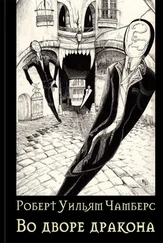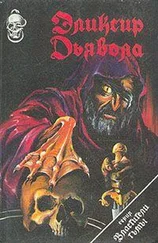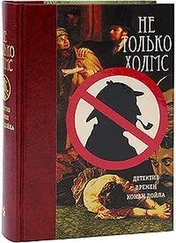Роберт Чамберс - Who Goes There!
Здесь есть возможность читать онлайн «Роберт Чамберс - Who Goes There!» весь текст электронной книги совершенно бесплатно (целиком полную версию без сокращений). В некоторых случаях можно слушать аудио, скачать через торрент в формате fb2 и присутствует краткое содержание. Год выпуска: 2014, Издательство: epubBooks Classics, Жанр: Историческая проза, на английском языке. Описание произведения, (предисловие) а так же отзывы посетителей доступны на портале библиотеки ЛибКат.
- Название:Who Goes There!
- Автор:
- Издательство:epubBooks Classics
- Жанр:
- Год:2014
- ISBN:нет данных
- Рейтинг книги:4 / 5. Голосов: 1
-
Избранное:Добавить в избранное
- Отзывы:
-
Ваша оценка:
- 80
- 1
- 2
- 3
- 4
- 5
Who Goes There!: краткое содержание, описание и аннотация
Предлагаем к чтению аннотацию, описание, краткое содержание или предисловие (зависит от того, что написал сам автор книги «Who Goes There!»). Если вы не нашли необходимую информацию о книге — напишите в комментариях, мы постараемся отыскать её.
Who Goes There! — читать онлайн бесплатно полную книгу (весь текст) целиком
Ниже представлен текст книги, разбитый по страницам. Система сохранения места последней прочитанной страницы, позволяет с удобством читать онлайн бесплатно книгу «Who Goes There!», без необходимости каждый раз заново искать на чём Вы остановились. Поставьте закладку, и сможете в любой момент перейти на страницу, на которой закончили чтение.
Интервал:
Закладка:
The vague tenderness in her blue eyes vanished; he had done this , too!—shamefully, by force, treading mercilessly on the frail bud of friendship—ignoring everything, sacrificing everything to a dull, obstinate determination which he had characterized as duty.
She turned and looked at the man who had done all this, her eyes darkly beautiful, her lips stern.
Duty? He had not considered the duty she owed. He had not respected her promise to bring back what had been intrusted to her. And when the discussion had tired him—when her warnings, pleadings—even her appeals in the name of the first friendship she had ever given—had been ignored, he had coolly used violence.
Yes, violence, although, perhaps, the violence had not been very violent. But it was force—and hateful to her who never before had been obliged to endure the arrogance which her caste only knew how to dispense.
"So brauch' Ich Gewalt!" kept ringing in her ears like a very obsession as she knelt there, sitting back on her own supple limbs, and watching the sleeping man out of beautiful hostile eyes.
That man! That American —or Belgian—whatever he was—with his clear grey eyes and his short yellow hair and that mouth of his which could be faintly humorous at times and, at times be so ugly and set—what was there about him that she liked—or rather had liked?
Not his features; they were only passable from an ornamental point of view—not his lean but powerful figure, which resembled many other figures she had seen in England—not his manner particularly—at least she had seen more deferential attitudes, more polish of the courtly and continental sort, more empressement.
What was it she liked,—had once liked in this man? Nothing! Nothing! —the tears suddenly glimmered in her eyes and she winked them dry, angrily.
And to think—to remember in years to come that she— she had pleaded with that man in the name of friendship—and of something more than friendship!—The hot colour mantled face and throat and she covered her eyes in a sudden agony of mortification.
For a few moments she remained so, then her hands fell, helplessly again.
And, as she knelt there looking at him through the increasing daylight, suddenly her eyes narrowed, and her set face grew still and intent.
Crowding out of the shallow breast pocket of his Norfolk where he lay were papers. Her papers!
The next instant, lithely, softly, soundlessly on her unshod feet, she had slipped from the lounge and crossed the stateroom to his side, and her fingers already touched the edges of the packet.
Her papers! And her hand rested on them. But she did not take them. There was something about the stealth of the act that checked her,—something that seemed foreign, repugnant to her nature.
Breathless, her narrow hand poised, she hesitated, trying to remember that the papers were hers—striving to aid herself with the hot and shameful memory of the violence he had offered her.
Why couldn't she take them? This man and she were now at war! War has two phases, violence and strategy. Both are legitimate; he had played his part, and this part was strategy. Why shouldn't she play that part? Why?
But her hand wavered, fell away, and she looked down into his sleeping face and knew that she could not do it.
After a moment his eyes opened and met hers, pleasantly.
She blushed to her hair.
He said: "Why didn't you take them, Karen?"
"You couldn't understand if I told you," she said with youthful bitterness.
He looked very grave at that. She turned, picked up shoes and spats, and seated herself on the sofa.
So he got up, opened the door and went up on deck, leaving her the stateroom to herself.
At the office of the wireless station the operator seemed to have no objection to sending a message for him to the British Consul in Amsterdam, and obligingly looked up the address. So Guild sent his message and prepaid reply.
Then he went into the smoking–room and lit a cigarette.
He was dozing when a steward awoke him with a reply to his wireless message:
Kervyn Guild
On board S. S.
Feyenoord
Will call at American Consulate. Many thanks.
CHURCHILL, Consul.
He sat thinking for a few minutes. Then remembering that he did not know where the American Consul was to be found, he went again to the wireless office and procured the address.
Turning, as he was leaving, to thank the boyish operator, he found that youth's shrewd eyes fixed on him intently.
"Look out, sir," said the operator, in perfectly good English. "There's a lot o' talk about you on board."
"What do you mean?"
"Wasn't it you the Wyvern was wanting?"
"Yes."
"You're friendly to us, I take it?"
"Do you mean to England?"
"Yes, sir."
"Yes, I am."
"I fancied so. Be very careful aboard this boat, sir. Half the crew and most of the stewards are German."
"Thanks," said Guild smilingly.
But as he walked slowly away he realized rather uneasily what an object of interest he had become to the personnel of the ship since the Wyvern had honoured him by her wireless inquiries concerning him.
Chapter XII
In the Rain
He went straight to the writing–room. Only one or two of his fellow–passengers were up, and he had the place to himself.
He wrote first:
W. A. Churchill, Esquire,
British Consulate,
Plantage Middenlaan 20,
Amsterdam,
Holland
SIR:
The following items of information should be immediately transmitted to your home Government. The importance of the matters in question admit of no delay.
1st. It has come to my knowledge that German spies in England have discovered the whereabouts of a British fleet—presumably the first line battle fleet—and have attempted to communicate the intelligence to Berlin. One document in cipher embodying this intelligence has been intercepted and translated. But other communications in cipher may get through.
2d. Another document of the same sort advises the Berlin Government to send from Cuxhaven a cruiser (parent ship) as convoy to three submarines for the purpose of attacking the British armoured ships.
The rendezvous of the British ships, as given in the cipher message, is Lough Swilly, North Irish coast.
The route suggested for the German cruiser and submarines is around the north coast of Scotland.
3d. Still a third document in cipher informs the German Government that the light cruiser, Schmetterling , at or off Valparaiso, is being pursued by the Japanese ship Geisha and the French gunboat Eventail .
4th. The fourth and last item of information to be transmitted to your Government concerns an actuality witnessed by myself and by the majority of the passengers of this steamer, now docking at Rotterdam.
Last night, somewhere between eleven o'clock and midnight, and somewhere off the Belgian coast, H. M. S. Wyvern was blown up, whether by mine or torpedo or by a bomb from some unseen air–craft I do not know. She was using her searchlight on the clouds at the time.
The ship was tilted out of the water at an odd angle when the red glare that suddenly enveloped her made her visible. It appears to me as though some submarine convulsion had heaved her up out of the sea.
There was one of her officers aboard our liner when the catastrophe occurred—Lieutenant Jamison. A boat's crew lay alongside of us. With these exceptions it does not seem probable that anybody aboard the Wyvern could have escaped death, although other ships were in the vicinity and their searchlights played upon her, and I saw small boats on the way to her before she finally blew to pieces.
Читать дальшеИнтервал:
Закладка:
Похожие книги на «Who Goes There!»
Представляем Вашему вниманию похожие книги на «Who Goes There!» списком для выбора. Мы отобрали схожую по названию и смыслу литературу в надежде предоставить читателям больше вариантов отыскать новые, интересные, ещё непрочитанные произведения.
Обсуждение, отзывы о книге «Who Goes There!» и просто собственные мнения читателей. Оставьте ваши комментарии, напишите, что Вы думаете о произведении, его смысле или главных героях. Укажите что конкретно понравилось, а что нет, и почему Вы так считаете.












